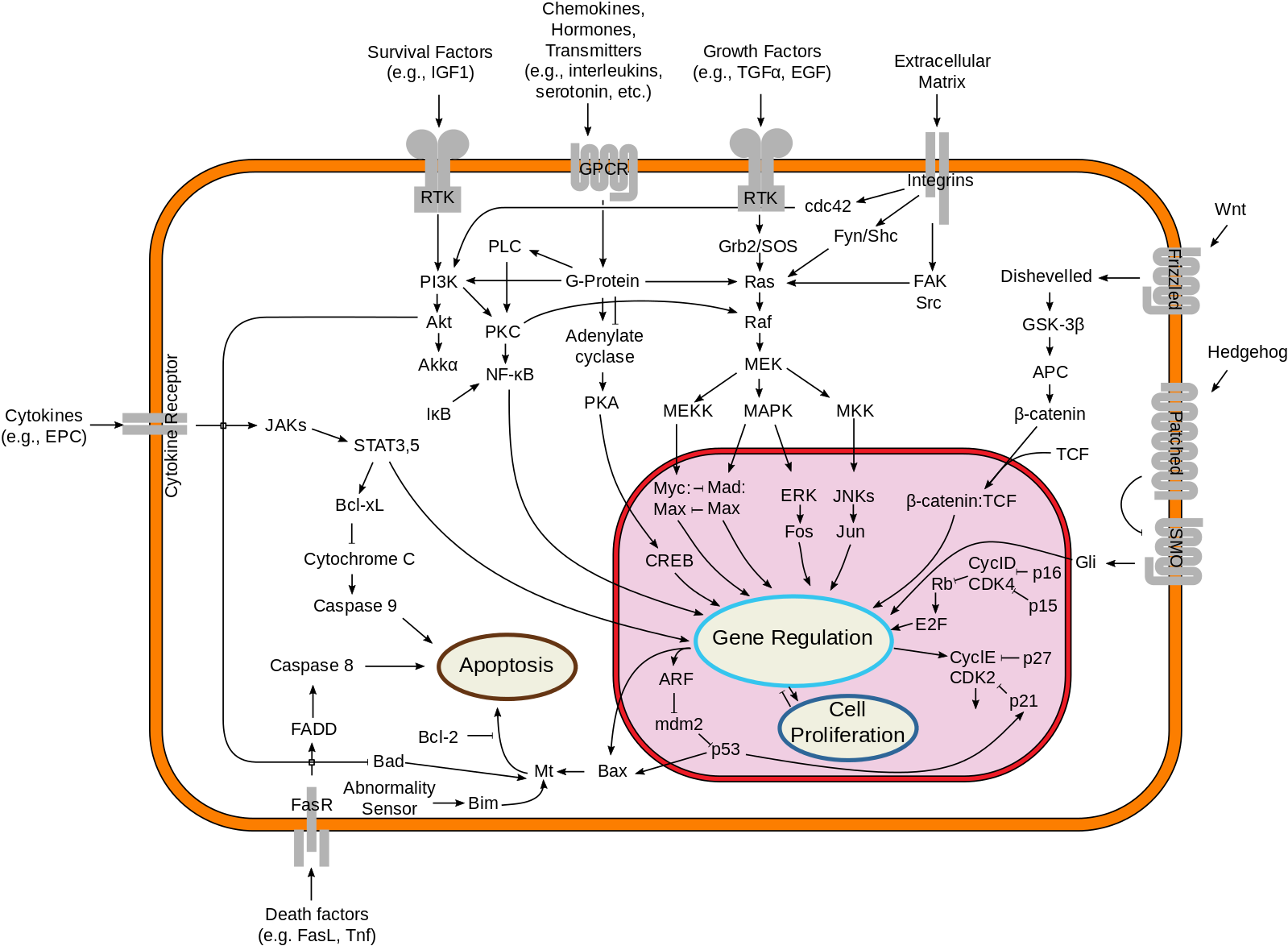Kati
Patient in training
- Messages
- 5,497
http://www.la-press.com/dysregulati...pression-in-nk-cells-from-chron-article-a5866
Foreword from the authors:
Dear Supporters,
The National Centre for Neuroimmunology and Emerging Diseases (NCNED) would like to sincerely thank the Stafford Fox Medical Research Foundation, Change for ME Australia, The Alison Hunter Memorial Foundation, Mr Douglas Stutt and the Queensland Government for providing financial support for our latest publication.
This current paper reports novel results of far reaching importance for CFS/ME diagnosis and possible pathology. The paper describes world first discoveries of kinase gene dysregulation associated with changes in calcium ion function. This research leads from previous significant papers we have recently published involving research into calcium ion channels in CFS/ME. Please refer to two of our recent publications reported in Biological Research and Clinical Application of Genetics.
These publications reflect the commitment of our team in achieving the best possible outcomes for those with CFS/ME.
Best Wishes
Sonya, Don and the NCNED Team
Dysregulation of Protein Kinase Gene Expression in NK Cells from Chronic Fatigue Syndrome/Myalgic Encephalomyelitis Patients
Anu Chacko, Donald R. Staines, Samantha C. Johnston and Sonya M. Marshall-Gradisnik
Gene Regulation and Systems Biology 2016:10 85-93
Original Research
Published on 28 Aug 2016
DOI: 10.4137/GRSB.S40036
Abstract
Background: The etiology and pathomechanism of chronic fatigue syndrome/myalgic encephalomyelitis (CFS/ME) are unknown. However, natural killer (NK) cell dysfunction, in particular reduced NK cytotoxic activity, is a consistent finding in CFS/ME patients. Previous research has reported significant changes in intracellular mitogen-activated protein kinase pathways from isolated NK cells. The purpose of this present investigation was to examine whether protein kinase genes have a role in abnormal NK cell intracellular signaling in CFS/ME.
Method: Messenger RNA (mRNA) expression of 528 protein kinase genes in isolated NK cells was analyzed (nCounter GX Human Kinase Kit v2 (XT); NanoString Technologies) from moderate (n = 11; age, 54.9 ± 10.3 years) and severe (n = 12; age, 47.5 ± 8.0 years) CFS/ME patients (classified by the 2011 International Consensus Criteria) and nonfatigued controls (n = 11; age, 50.0 ± 12.3 years).
Results: The expression of 92 protein kinase genes was significantly different in the severe CFS/ME group compared with nonfatigued controls. Among these, 37 genes were significantly upregulated and 55 genes were significantly downregulated in severe CFS/ME patients compared with nonfatigued controls.
Conclusions: In severe CFS/ME patients, dysfunction in protein kinase genes may contribute to impairments in NK cell intracellular signaling and effector function. Similar changes in protein kinase genes may be present in other cells, potentially contributing to the pathomechanism of this illness.
Foreword from the authors:
Dear Supporters,
The National Centre for Neuroimmunology and Emerging Diseases (NCNED) would like to sincerely thank the Stafford Fox Medical Research Foundation, Change for ME Australia, The Alison Hunter Memorial Foundation, Mr Douglas Stutt and the Queensland Government for providing financial support for our latest publication.
This current paper reports novel results of far reaching importance for CFS/ME diagnosis and possible pathology. The paper describes world first discoveries of kinase gene dysregulation associated with changes in calcium ion function. This research leads from previous significant papers we have recently published involving research into calcium ion channels in CFS/ME. Please refer to two of our recent publications reported in Biological Research and Clinical Application of Genetics.
These publications reflect the commitment of our team in achieving the best possible outcomes for those with CFS/ME.
Best Wishes
Sonya, Don and the NCNED Team
Dysregulation of Protein Kinase Gene Expression in NK Cells from Chronic Fatigue Syndrome/Myalgic Encephalomyelitis Patients
Anu Chacko, Donald R. Staines, Samantha C. Johnston and Sonya M. Marshall-Gradisnik
Gene Regulation and Systems Biology 2016:10 85-93
Original Research
Published on 28 Aug 2016
DOI: 10.4137/GRSB.S40036
Abstract
Background: The etiology and pathomechanism of chronic fatigue syndrome/myalgic encephalomyelitis (CFS/ME) are unknown. However, natural killer (NK) cell dysfunction, in particular reduced NK cytotoxic activity, is a consistent finding in CFS/ME patients. Previous research has reported significant changes in intracellular mitogen-activated protein kinase pathways from isolated NK cells. The purpose of this present investigation was to examine whether protein kinase genes have a role in abnormal NK cell intracellular signaling in CFS/ME.
Method: Messenger RNA (mRNA) expression of 528 protein kinase genes in isolated NK cells was analyzed (nCounter GX Human Kinase Kit v2 (XT); NanoString Technologies) from moderate (n = 11; age, 54.9 ± 10.3 years) and severe (n = 12; age, 47.5 ± 8.0 years) CFS/ME patients (classified by the 2011 International Consensus Criteria) and nonfatigued controls (n = 11; age, 50.0 ± 12.3 years).
Results: The expression of 92 protein kinase genes was significantly different in the severe CFS/ME group compared with nonfatigued controls. Among these, 37 genes were significantly upregulated and 55 genes were significantly downregulated in severe CFS/ME patients compared with nonfatigued controls.
Conclusions: In severe CFS/ME patients, dysfunction in protein kinase genes may contribute to impairments in NK cell intracellular signaling and effector function. Similar changes in protein kinase genes may be present in other cells, potentially contributing to the pathomechanism of this illness.
Last edited:


